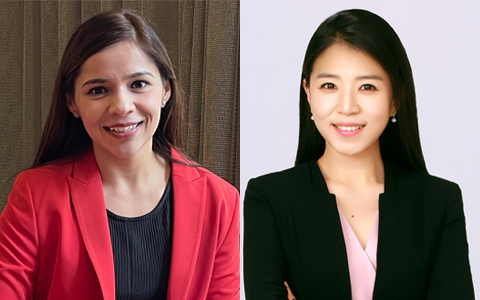Dec 5, 2023
Two Gies faculty named “Best Undergraduate Business Professors” by Poets&Quants
Two Gies College of Business professors have been named to Poets&Quants’ 50 Best Undergraduate Business Professors list for 2023. Both assistant professors of business administration, Unnati Narang and Min Jung Kim were named to the list out of over 650 nominations submitted by students, alumni, colleagues, and deans from 50 different business programs.

After earning her PhD in Business Administration from Texas A&M in 2020, Unnati Narang joined Gies to teach and study mobile marketing, mobility, and digital platforms. Currently, she has two major projects: researching the potential privacy trade-offs of geo-tracking consumer locations and examining the impact of generative artificial intelligence (AI) on content creation and engagement by users in online learning platforms. She teaches two undergraduate courses at Gies: Marketing Analytics and Advanced Marketing Management.
“I like to co-create unique learning experiences in the classroom through hands-on practice, storytelling, and well-designed activities that magically make the teaching-learning dynamic happen real-time,” said Narang. “And yes, it is possible to do this in both in-person and online sessions, although the engagement strategies may be different.”
Min Jung Kim came to Gies after earning her PhD from the University of Minnesota in 2020. Kim studies how the geographic concentration of industry activity influences firms’ technological innovation and entrepreneurship. One of her papers determined that the greater novelty of innovation by firms in growing clusters are driven by inflows of knowledge from different geographies or industries. These findings uncover a new mechanism through which clustering affects firm innovation. Kim teaches Business Policy and Strategy at Gies.
“[I appreciate] the diverse learning styles and potential areas of difficulty,” said Kim, regarding what makes her stand out from other undergraduate professors. “This mindset informs my teaching methodology, fostering an environment where students can learn more effectively. I believe this approach creates a more inclusive and supportive learning experience for all students.”
The proclivity toward inclusion and understanding echoes a similar sentiment from Narang, “The business school of the future will create opportunity, access, and engagement for learners across the world while valuing who they are i.e., embracing diversity, equity, and inclusion (at Gies, we call this the “seen, valued, heard” perspective).”
